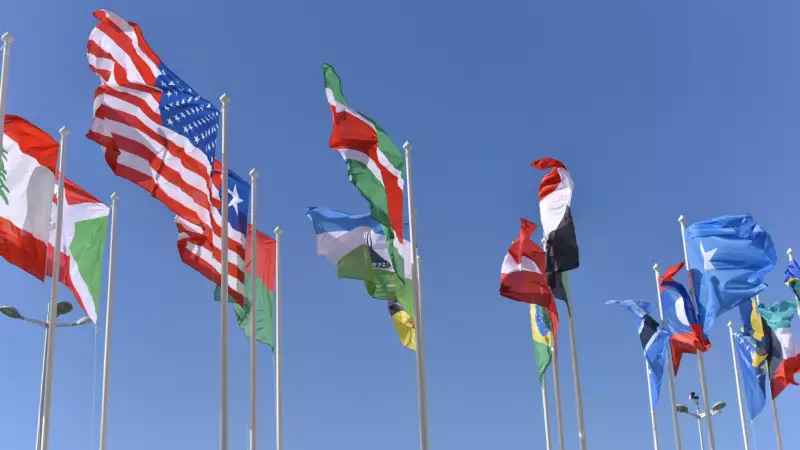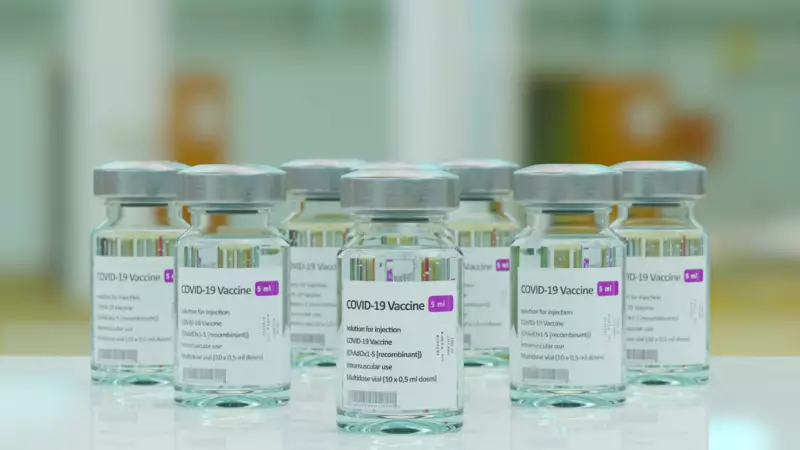Framework for a Global Action Plan for COVID-19 Response
We are at an exceedingly perilous and urgent moment in the COVID-19 pandemic. As the Delta variant has demonstrated, we are fighting a virus that doesn’t respect borders and rapidly advances across continents. If the virus continues to circulate unchecked in large parts of the world, we will see not only many more millions of infections and deaths, but also new variants that could totally pierce vaccine immunity, returning the world to square one.
The global COVID-19 crisis demands leadership and a global plan of attack. A coordinated, global response, the only possible successful response to the pandemic, must be grounded in equity at all levels – global, regional, national, subnational and community. An “all hands on deck” crisis response must deploy all available resources and capabilities – multilateral and bilateral, public and private sector. A robust and effective response to the current crisis is also the best foundation for health systems strengthening and future pandemic preparedness. World leaders should therefore urgently convene a “Global Pandemic Response and Vaccination Summit” and commit to urgent actions detailed in our Framework For a Global Action Plan for COVID-19 Response.
1. Strengthen global leadership and accountability.
Strong, sustained political leadership and accountability is needed to coordinate and galvanize the many existing multilateral and bilateral responses. Leaders must:
- Secure commitments to clear goals and a comprehensive global COVID-19 response roadmap to deliver all COVID-19 tools to low- and middle-income countries (LMICs), as noted below.
- Establish stronger global leadership for a coordinated pandemic response, such as through the appointment of a senior UN Special Envoy or other mechanisms, who would be supported by a dedicated team and would work closely with the Multilateral Leaders Task Force (co-led by the International Monetary Fund (IMF), World Bank Group (WB), World Health Organization (WHO), and World Trade Organization (WTO)), and global, regional, and national leaders.
- Assess and position ACT-A and COVAX to successfully deliver on their mandates as part of the global response within the context of a comprehensive global COVID-19 response roadmap, while encouraging additional bilateral support for vaccines and delivery.
- Support country-level monthly progress reporting — with independent data verification — to refine national and global priorities and integrate accountability measures for performance into global, regional, and national governance mechanisms.
2. Develop and implement a Global COVID-19 Response Roadmap.
Leaders should agree to an end-to-end, fully costed roadmap to end the acute phase of the COVID-19 pandemic, which should include specific, time-bound commitments and steps to:
- Establish and meet country-level and global targets, including:
- universal (100%) country-readiness to undertake effective vaccination programs at scale by end of 2021;
- access to 14 billion doses of high-quality vaccines by mid-2022;
- vaccination of 70% of the population of every country by mid-2022; and
- country-specific targets for access to tests, treatments, and other critical interventions.
- Project, within 30 days of the summit, the full costs to successfully implement the Global COVID-19 Response Roadmap, working with the Multilateral Leaders Task Force.
- Ensure transparent and timely tracking and reporting of disaggregated data and analysis on all aspects of the comprehensive global response, including proactive identification of financial, logistical, supply, and delivery gaps.
- Support robust surveillance and data-sharing (including for genomic sequencing); increased testing and analysis to detect emerging variants; and research, development, and clinical trials for ‘wave 2’ therapeutic and vaccine candidates.
3. Empower a Global Task Force for Supply Chain and Manufacturing.
Force should be part of the global leadership framework and should expand production of vaccine inputs, vaccines, diagnostics, therapeutics, and other life-saving interventions by ensuring:
- Implementation and facilitation of technology and knowledge transfer, licensing, public-private cooperation, and investments (in addition to any WTO actions) to accelerate and expand manufacturing capacity in LMICs, including through regional vaccine production hubs such as the WHO-South Africa mRNA hub.
- Transparency in vaccine production, pricing, supply, financing, and delivery so that vaccines can be tracked from factory to arm.
- Increased production of and access to effective therapeutics, oxygen, diagnostic and surveillance capabilities, and personal protective equipment (PPE).
4. Accelerate sharing of vaccines and other life-saving interventions.
To accelerate access to vaccines and other critical interventions, G7/EU and G20 members should:
- Share at least 1 billion vaccine doses as soon as possible, with the aim of 2 billion doses by the end of 2021.
- Commit to dose-sharing principles and ensure the successful distribution of vaccines to LMICs as early as possible, through COVAX, the AU, or other bodies or initiatives coordinating delivery of vaccines.
- Increase immediate donations of other high-priority interventions through multilateral and bilateral channels.
5. Prioritize strengthening country-level distribution and delivery capabilities.
Recognizing that country-level distribution, delivery, and demand-generation are quickly becoming the key constraints in the race between vaccines and variants, leaders should:
- Identify and address logistical, delivery, and funding gaps in each country within the roadmap, including in refugee and internally displaced people (IDP) contexts, to ensure countries can cover all logistics and delivery needs for vaccines and other COVID-19 tools.
- Augment multilateral efforts through national initiatives from G7/EU and G20 countries to strengthen LMIC distribution and delivery capacity, modeled on successful programs such as PEPFAR.
- Strengthen health systems by supporting frontline and community health workers, implementing successful vaccination campaigns, addressing vaccine hesitancy, expanding COVID-19 testing, and increasing the surveillance of new variants.
6. Increase multi-year financing for the pandemic response in LMICs.
In line with the end-to-end costing undertaken as part of the Global COVID-19 Response Roadmap, immediate and multi-year funding commitments must match the scope and urgency of the need. Leaders should therefore:
- Commit to fully fund the Global COVID-19 Response Roadmap, leveraging financing from governments, multilateral development banks (MDBs), the IMF and private donors in addition to Official Development Assistance.
- Establish a financing mechanism within 100 days of the summit to channel and direct the additional funding required for the current pandemic response to where it is most needed, and to also jumpstart funding for preparedness for emerging pandemic threats.
Endorsed By
John Bridgeland
CEO, COVID Collaborative
Larry Brilliant
CEO Pandefense Advisory and Senior Counselor, Skoll Foundation
Gary Edson
President, COVID Collaborative
William Frist
Former US Senator (R-TN) and Former Senate Majority Leader
Helene Gayle
President and Chief Executive Officer, The Chicago Community Trust
Bruce Gellin
Chief, Global Public Health Strategy, The Rockefeller Foundation
Amanda Glassman
Executive Vice President, Center for Global Development, CEO of CGD Europe, and Senior Fellow
Scott Gottlieb
Resident Fellow, American Enterprise Institute Fmr. FDA Commissioner
Margaret (Peggy) Hamburg
Former Commissioner of the US Food and Drug Administration, and former Foreign Secretary of the National Academy of Medicine
Amb [ret] Jimmy Kolker
Former Assistant Secretary, Global Affairs, Department Health and Human Services
Jack Leslie
Chairman, Weber Shandwick
Mark McClellan
Director, Duke-Margolis Center for Health Policy, Duke University
Michael Merson
Wolfgang Joklik Professor of Global Health, Duke Global Health Institute, Duke University
Carolyn Reynolds
Co-Founder, Pandemic Action Network, and Senior Associate, Global Health Policy Center, CSIS
Rachel Silverman
Policy Fellow, Center for Global Development
Eloise Todd
Co-Founder, Pandemic Action Network
Krishna Udayakumar
Director, Duke Global Health Innovation Center, Duke University
Prashant Yadav
Senior Fellow, Center for Global Development

